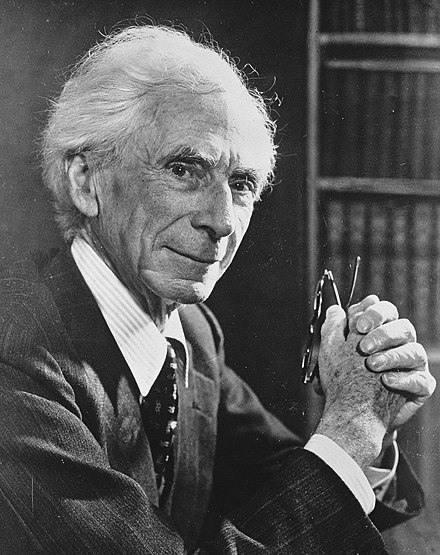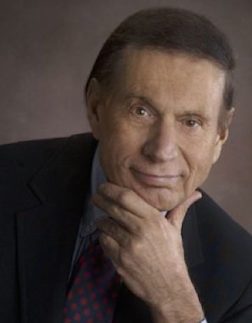Forty by Forty
I am continuing to think about the 40 books that should be read by the age of 40. This week we look not at specific books, but at a category of books. While I will mention some of the books and authors that I have read, I do not have confidence they are the best books on this subject. I do have confidence however, that this is a subject of immense importance which is often neglected. Too often people think they “know” when in fact their understanding is limited.
The Problem with God
 The first time I heard the gospel, that Jesus had died for my sins and God was in control of the universe, I wanted it to be true. Although I didn’t have words to express my feelings at the time, I felt shame, and I wanted forgiveness and freedom from that shame. I also felt like the world was spinning out of control and wanted to believe someone was in control.
The first time I heard the gospel, that Jesus had died for my sins and God was in control of the universe, I wanted it to be true. Although I didn’t have words to express my feelings at the time, I felt shame, and I wanted forgiveness and freedom from that shame. I also felt like the world was spinning out of control and wanted to believe someone was in control.
When I first started attending church, there was a youth group with other students and adults that functioned very differently than the high school I was attending. Unlike school, everyone seemed genuinely happy I was there, and they were very kind to me. I really liked church and loved the idea of a God who had forgiven me and was in control.
However, it was also hard for me to believe that there was a God who cared about me and was in control of the universe. As much as I wanted to believe the Christian gospel, I had my doubts. As I learned of Freud’s theory that God was just made up because we are afraid of death, that made a lot of sense to me. When I learned a little more history and read that Marx believed that religion was the opiate of the people, that seemed insightful.
Meanwhile, it seemed like many Christians had an anti-intellectual approach to religion. Many of my Christian friends and leaders seemed to be ignorant or dismissive of science, for example. I have always thought the scientific method pointed to truth and never wanted to discount what science had discovered. I was also troubled by the random suffering in the world and the seemingly random suffering of people I knew. (I had a couple of friends die when I was in high school and early in my Navy career.) If there was a God who was in control, there was not a lot of evidence He was taking care of the people who loved Him.
Examining The Arguments Against God
I think that before a person is 40, they should read books that address these issues. I think that the two most important questions which everyone needs to answer are: is there a God and, if there is, what is He like? As I look over the list of books which have shaped the way I think and live, there are several books which argue for Christianity as well as those that argue against it. Soon after I became a Christian, I read Bertrand Russell’s Why I am Not a Christian. I wanted to understand why very smart and respected philosophers rejected the faith. I have read this essay several times and each time I am disappointed that such a brilliant thinker could not be more compelling.
 I have also read The God Delusion by Richard Dawkins and God Is Not Great by Christopher Hitchens, and I do not find the arguments advanced in these books compelling.
I have also read The God Delusion by Richard Dawkins and God Is Not Great by Christopher Hitchens, and I do not find the arguments advanced in these books compelling.
These authors question that, in the vastness of the known universe, there is a creator God who knows us, cares about us, and is involved with our lives. They can’t believe that is true. They have a good point; it is hard to believe. However, it is also hard to believe that we are just here by chance and time. It seems to me that if there were no God, and we lived in only a material universe, then feelings like love, wonder, and grief would only be a chemical response to the circumstances. No one who has ever been in love, watched in amazement as the sun set, or cried at a funeral of a loved one, would ever say it was just a chemical reaction.
These authors are also skilled at pointing out the many embarrassing religious sects and moral failures of those who have believed in God. Once again, they are not wrong. It is easy to find events (past and present) where people who believe in God have done things, often very publicly, which are cruel and evil.
However, these authors omit all the good that people of faith have brought to the world. People of faith have built schools, hospitals, and relieved the sufferings of millions of people in many ways. The history of people of faith is mixed. To only view one side, as these authors have done, leaves me feeling like I am being sold half a story.
Richard Dawkins and Christopher Hitchens are clear that they believe that no reasonable person can believe in God. But that is just not true. For example, just recently in TIME, there was a long profile of Francis Collins, director of the National Institutes of Health. Like C.S. Lewis, Chuck Colson and others listed below who have guided my faith, his brilliance far exceeds my own. Yet, like me, he concludes that there is no contradiction between science and faith. He says, “It’s a glimpse of God’s Mind when you do a scientific experiment.” 1
Finding the Answers to the Problem
I do think that it is hard to believe in a creator God who cares for us. However, it is not unreasonable. I think it is possible to look at the evidence and come to different conclusions. There are intelligent arguments on both sides of the question. However, as I look at the evidence in biology, philosophy, psychology, and in my personal experience, I find it more probable to believe in a creator God. And I find the most probable revelation of that God is through the person of Jesus Christ.

By contrast, to those listed above, I have found the writings of C.S. Lewis convincing. I am sure that most of my readers are familiar with Lewis’ The Lion, the Witch and the Wardrobe, but it was his Mere Christianity and The Most Reluctant Convert which have found a place in my heart. In Mere Christianity Lewis puts forth a compelling argument for Christianity. In The Most Reluctant Convert, Lewis recounts the story about how he became a believer against his will. There is NO doubt that Lewis was brilliant, and a committed atheist, before he became a Christian at age 29. When he was a professor at Oxford college friends challenged him to think seriously about Christianity. As he explored the case for God and Christianity, he found the evidence for Christianity overwhelming, and he accepted Jesus. The book is not unlike another of my favorite books, Not God’s Type: A Rational Academic Finds a Radical Faith by Holly Ordway. These books have helped me because I don’t have great confidence in my intellectual ability, but if authors like Lewis and Ordway can look at the evidence and be convinced, I know I am not just believing in a nice fairy tale.
 I have also been deeply influenced by The Question of God by Dr. Armand Nicholi Jr. Nicholi is an associate clinical professor of psychiatry at Harvard Medical School. He believes that Sigmund Freud was the greatest materialist thinker of the 20th century. He also believes that C.S. Lewis was the greatest Christian thinker of the 20th century. In The Question of God, Nicholi sets up a debate between Freud and Lewis, using their public writings as well as private correspondence. The book is about belief and nonbelief, but it does not presuppose which answer is correct. Instead, it uses two of history’s most articulate spokespeople to present arguments on both sides. More than any book I have read, this volume has given me a great confidence, not only in the truth of Christianity, but also the advantages of living the Christian life.
I have also been deeply influenced by The Question of God by Dr. Armand Nicholi Jr. Nicholi is an associate clinical professor of psychiatry at Harvard Medical School. He believes that Sigmund Freud was the greatest materialist thinker of the 20th century. He also believes that C.S. Lewis was the greatest Christian thinker of the 20th century. In The Question of God, Nicholi sets up a debate between Freud and Lewis, using their public writings as well as private correspondence. The book is about belief and nonbelief, but it does not presuppose which answer is correct. Instead, it uses two of history’s most articulate spokespeople to present arguments on both sides. More than any book I have read, this volume has given me a great confidence, not only in the truth of Christianity, but also the advantages of living the Christian life.
There have been other authors who have helped solidify my faith: Philip Yancey, Chuck Colson, Josh McDowell, and Lee Strobel name just a few. I think that before a person turns 40, they should have a good grasp of the arguments for Christianity as well as the arguments against the faith. Because this is such an important question with implications for daily life, it is not sufficient to believe or disbelieve because of what others have said, or because it is what you have always believed. I think everyone, regardless of their final decision, needs to understand the arguments that have been put forth by some of the best thinkers of our time.
___________________
TIME, February 15, 2021; p. 40.
So enduring, and enlightening I can honestly relate this to my personal life who still struggles with my faith and maybe when I get the chance to read some of these great and wise authors especially C.S Lewis I thoroughly enjoyed his works with fantasy so I can’t see why I wouldn’t read more his own works.